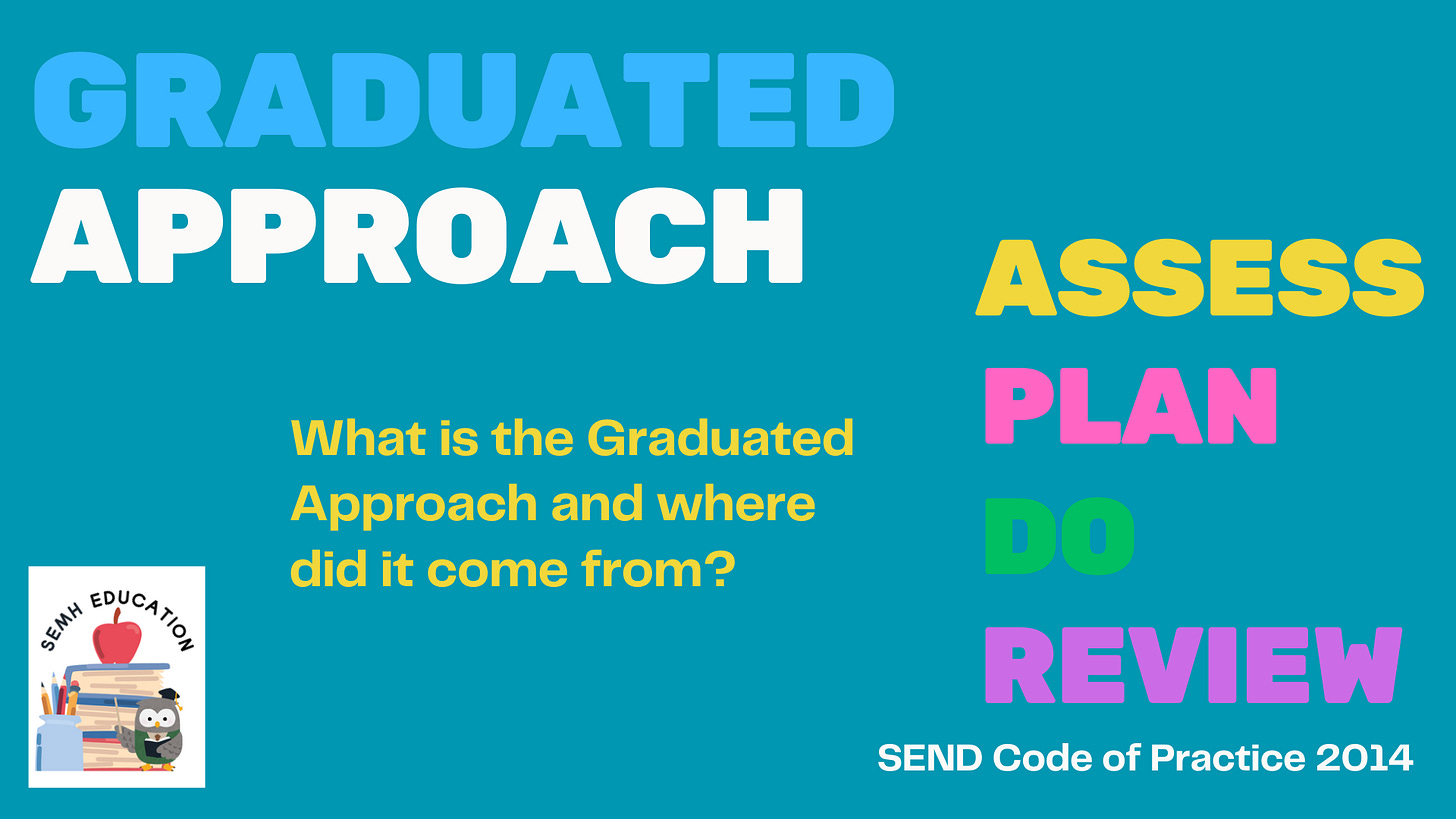🔀What is the 'Graduated Approach'?🔁
The term 'graduated approach' is often used in school these days, but what does it actually mean?
The graduated approach is a really effective and targeted way to support learners in school. The approach can be used from reception all the way up to the University level of education!
But what does it mean and where did it come from? In this post, I’ll break it down for you so it’s (hopefully!) easier to understand!
If you think your child is struggling at school, you are well within your right to ask them if they have followed their graduated approach to support them.
Where did it come from? 🌍
The term became common use in school language after the release of the Special Educational Needs and Disability (SEND)📄Code of Practice: 0 to 25 years, 2014. Within this document, the phrase graduated approach is referenced in chapter 6.
What does it mean?
The term basically means schools should follow an Assess, Plan, Do, Review🔄cycle for every child on their roll and input the relevant level of support. Schools often have 3 waves of their graduated approach which we will explore further soon. But first, what does this 4-part cycle look like?
Assess
Assessments of your child’s needs will come in different forms. At a basic level, it will be through the teacher’s marking. For example, if they spot signs in your child’s writing that they may be dyslexic, they may screen them for dyslexia. The two forms of assessment here are the teacher marking and the dyslexia screening tests.
Other assessments could include observations by the SENCO or a neurodiverse questionnaire.
Plan
Once the school has assessed your child’s needs, a plan will be put in place to support them. For the dyslexia example, this could include purchasing different coloured overlays and finding out which off-white colour is best for your child to read and work on.
Do
This section of the cycle means implementing the support outlined in the planning sections. Sticking with the dyslexia example, this would include using the overlay and off-white colour your child responds best to. It could also include booking a specialist to visit the school and officially test your child for dyslexia. As dyslexia screeners are not an official diagnosis.
Review
Reviews of the plan should take place around every 4-6 weeks to ensure the strategies put in place are still effective and don’t need changing. It’s worth noting here that if a plan is working then it shouldn’t be taken away instantly! If it’s not broken, don’t fix it!
Waves of support 🌊
Schools won’t often explain the Assess, Plan, Do, Review cycle to you. However, it is the process they should be using to identify the appropriate support for you child.
They will usually explain that your child is on Wave X of our graduated approach. So, what are the waves and how many are there? Schools usually adopt a 3 wave approach, so I’ll break those down for you now!
Wave 1
Support included in this bracket is the support that every pupil should have access to. It should come with very little effort to the school!
Quality first teaching from teachers
Differentiated tasks
Structured routines
Visual prompts/support (Visual timetable)
Pupil Passport
Wave 2
Targetted interventions/support (within the class) - usually led by the Teaching Assistant.
Small group work to catch up with missed sessions
Fidget toys
Overlays for reading
Basic assessments (dyslexia screeners or Neurodiverse questionnaires)
Social stories
Reading Wedges/Slopes
Sensory room
Movement breaks
Reduced Timetable
Wave 3
Specialist assessments completed by trained professionals - Educational Psychologists
Continued visits by external agencies - Speech and Language Therapists
Personalised timetable - access to sensory workspace and specialised staff.
Bespoke interventions completed by highly trained and specialised school staff - usually on the senior leadership team.
These are just some examples of the different strategies used in each wave. The list is by no means exhaustive but will hopefully provide a sense of how the support increases throughout the waves!
I hope this has helped you gain a better understanding of what the term Graduated Approach actually means! Please consider subscribing and sharing the posts if you have 😊



